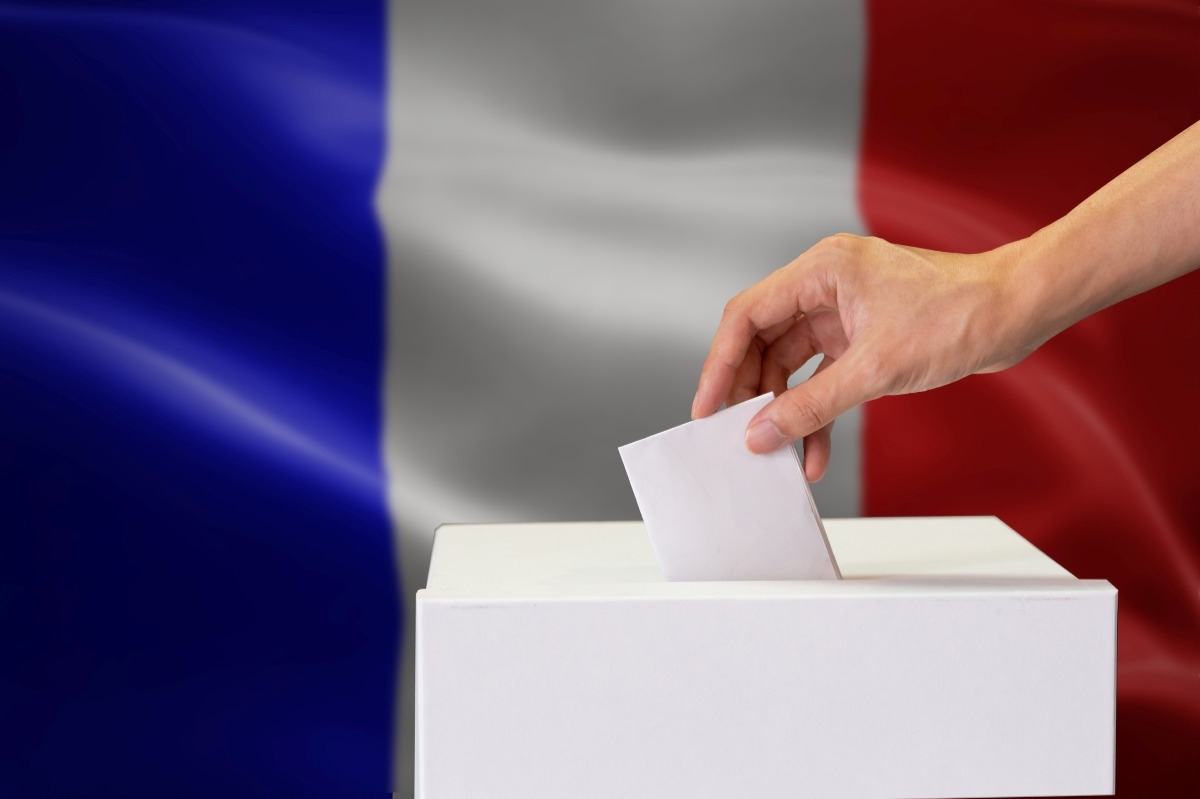France: The Perils of an Election

[Jean-Marie Le Pen] learned from General Boulanger’s strategy of merging the monarchist right with the radical revolutionary left by working on two key constituencies: the urban working class increasingly disillusioned with Stalinist and social democratic parties, and the dwindling farming communities that felt threatened by free trade and globalization.
The Le Pen-ist movement turned the fight against immigration into the launching pad in its quest for power.
The tactic proved especially profitable in terms of getting votes in parts of France that had almost no or few immigrant communities. However, that wasn’t enough either. Thus, National Rally cast the European Union as “the other” in the “them-and-us” discourse, to the point of calling for leaving the Schengen Agreement and the Euro-zone in 2017.
The [National Rally] party’s program for government reads like the inventory of a candy store, full of goodies but not clear where and when they might be served.
What is certain is that NR is now the France’s largest political party, backed by about 40 percent of voters. Even if it does not win a majority in the new parliament, it would be the key player in French politics for the foreseeable future.
Some pundits see it as a threat to French democracy. Maybe. But demonizing it is an even bigger threat.
Barring a surprise, which is still possible, today France may have its first elected ultra-right government led by Marine Le Pen’s National Rally (formerly National Front). The only other time that that brand of politics emerged as government in France was in the 1940s under Marshal Petain during the German occupation.
At a broader level, this would be the second time since the general election in the Weimar Republic in Germany in 1932 that an ultra-right party wins a straight parliamentary majority in a major European democracy.
Should we rush to join those on the ultra-left who are crying wolf about “fascism” seizing control of France?
I think not.
To be sure, the National Rally does share a number of attributes with ur-fascism, e.g. a narrow understanding of nationhood, a xenophobic tone, and a cult of the leader. However, the National Rally is heir to a political tradition with deep roots in modern French history.
This special brand of rightist politics was shaped in competition with two other brands: the Bonapartist with its empire-building dreams and cult of the savior, and the Orleanist depending on the urban middle class and promises of prosperity.
It found its first expression in the Chouan uprising against the Great Revolution of 1879, which gave the nascent movement an anti-left character from the start.
While the Chouan revolt took place as a crude version of guerrilla warfare, or jacquerie in French, the evolving ultra-right movement gradually acquired an urban base through what is known as the petite bourgeoisie, who feared violence from the expanding proletariat as industrialization intensified, and worried about loss of national, principally Christian, identity.
Divided between radical right and radical left, French politics did not succeed in building perennial democratic institutions and practices. Political parties were formed around charismatic figures but, unlike in Great Britain or the United States, seldom survived the disappearance of that figure.
France’s ultra-right has always fed on three resentments.
The first was the loss of monarchy as a result of a revolution that ultra-right thinkers presented as a conspiracy by foreign forces against France, which was the world’s only superpower at the time.
The second was the loss of empire and French blood as a result of what Robert Brasilliach, one of France’s top radical right prophets, called Napoleon Bonaparte’s “mad ambitions.” In his “Child of the Night”, Brasillach laments the re-drawing of the European map with French blood and its mixing with alien blood.
Later, Brasiliach’s ideas formed the ideological backbone of the proto-terrorist group Action Française.
The third was what some writers saw as the de-francization of France in the wake of the 1870 defeat by Prussian-led Germany. Here the finger was specially pointed at Jews and led to the Dreyfus Affair, in which a Jewish army officer was unjustly accused of spying for Germany.
Lucien Rebate’s masterpiece “The Two Standards” was inspired by the claim that France is divided into two hostile camps under two flags.
In one camp are those who wish to preserve France’s “francité” (French-ness) while advocates of the Great Revolution’s “universal values” try to dissolve French identity in an amorphous human fraternity in the name of liberty and equality.
Charles Maurras, perhaps the finest ultra-right French writer in literary terms, sees the Great Revolution as a politico-historic version of the biblical original sin. In his “Order and Disorder,” he identifies Western liberals and Marxists as the arch-enemies of the nation.
Those resentments have been renewed by other instances of what in his book “On Humiliation,” Olivier Abel describes as painful for a whole society.
The Dien Bien Phu disaster for the French army in Indochina in 1954 and the loss of French Algeria in 1962 are two examples.
In fact, the National Front that now knocks on the door of power in Paris as the National Rally was inspired by a number of personalities, including the politician Jacques Soustelle and the lawyer Tixier-Vingancour, who vocalized pains of “national humiliations”.
Some men who had fought in Vietnam or Algeria became foot soldiers for the revanchist Algérie française movement and its OAS (organization of the secret army) that pushed France under General Charles De Gaulle to the edge of civil war.
Jean-Marie Le Pen and a dozen associates translated that resentment into political action by forming the National Front. Le Pen realized that if limited to nostalgia, resentment and the concerns of the lower middle classes, his party would have little chance of winning power via the ballot box.
He learned from General Boulanger’s strategy of merging the monarchist right with the radical revolutionary left by working on two key constituencies: the urban working class increasingly disillusioned with Stalinist and social democratic parties, and the dwindling farming communities that felt threatened by free trade and globalization.
An earlier version of Le Pen-ism, known as Poujadism in the 1950s, had failed because it made no inroads into those major constituencies.
All ultra-right movements use “us-and-them” as a template for their discourse.
The Le Pen-ist movement turned the fight against immigration into the launching pad in its quest for power.
The tactic proved especially profitable in terms of getting votes in parts of France that had almost no or few immigrant communities. However, that wasn’t enough either. Thus, National Rally cast the European Union as “the other” in the “them-and-us” discourse, to the point of calling for leaving the Schengen Agreement and the Euro-zone in 2017.
Le Pen-ism also borrowed a faintly anti-American accent from Gaullism, another French political movement built around a charismatic leader.
Having said all that, the fact remains that all we have from the NR is an impressionistic sketch that depicts NR as xenophobic, anti-Islamic, anti-Semitic and Euro-sceptic.
That, however, is an impression. The party’s program for government reads like the inventory of a candy store, full of goodies but not clear where and when they might be served.
As a prime minister, Jordan Bardella, the youthful sidekick to Marine Le Pen, could turn out to be a trouser-wearing version of Italy’s Prime Minister Giorgia Meloni , who has surprised even political foes with her pragmatism.
What is certain is that NR is now the France’s largest political party, backed by about 40 percent of voters. Even if it does not win a majority in the new parliament, it would be the key player in French politics for the foreseeable future.
Some pundits see it as a threat to French democracy. Maybe. But demonizing it is an even bigger threat.
egretnewseditor@gmail.com
























